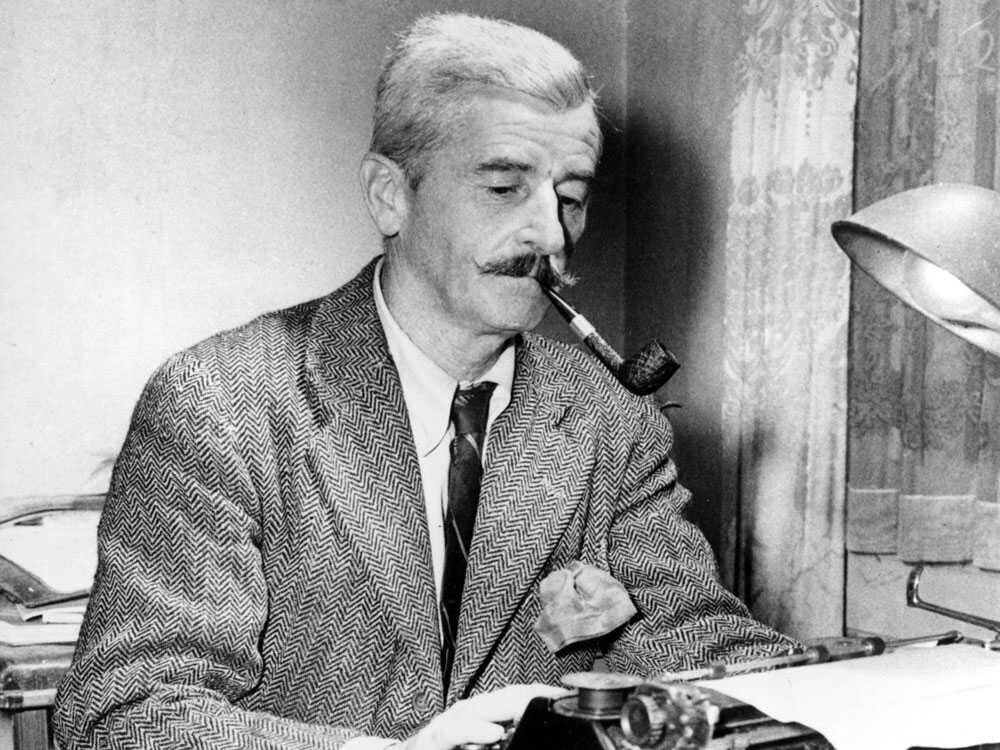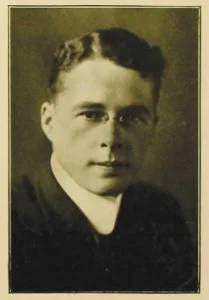The famous British missionary to China, Hudson Taylor, is often credited with the assertion, “The Great Commission is not an option to be considered; it is a command to be obeyed.”[1] Since the dawn of Christianity, this truism has been embraced (and chased) by innumerable Christians, including the earliest Quaker missionaries in the seventeenth century and continuing even unto this very day.
Their life stories and missional testimonies provide an instrumental glimpse into the policies and practices that helped them obey Jesus’s commandment to “Go into all the world and preach the gospel to all creation” (Mark 16:15).[2] From a deep inspection of their writings, seven key themes and strategies emerge through their biblical approaches to evangelism, which will be shared in the essay to follow.
They Were Called
First, they all heard God bidding them to evangelize abroad. The apostle Peter affirmed their perceptions in the beginning of the Jesus movement, proclaiming, “But you are a chosen people, a royal priesthood, a holy nation, a people for God’s own possession, so that you may proclaim the excellencies of Him who has called you out of darkness into His marvelous light” (1 Pet 2:9). This was not lost on Quakerism’s founder, George Fox, who also heard and obeyed God’s calling for him. Quaker Biographer Christina Jones states,
A sense of mission permeated the life and thought of early Quakerism. From the moment George Fox heard the voice say, “There is one, even Christ Jesus who can speak to thy condition,” until his death more than forty years later, he never ceased to share the great truth with others. His followers, likewise, were filled with a burning desire to tell it to all men.[3]
Quaker historian Walter Williams further asserts, “The driving motive of all [missionary Esther Butler’s] study was the heaven-born desire that she might be the better able to set forth the unsearchable riches of Christ.”[4] Virginia Miller states, “In these years of pioneer ministry, it was evident that the foundation of a Christ-centered church was laid out by the Holy Spirit,”[5] and Friends’ missionaries have been equally drawn throughout the centuries of missions.
They Were Committed
Second, once called, the best missionary course of action for many Quakers was unwavering commitment, their consciences and actions bearing witness. This aligns well with the apostle Paul exhortation: “Be diligent to present yourself approved to God as a worker who does not need to be ashamed, accurately handling the word of truth” (2 Tim 2:15).
Williams elaborates on their dedication, sharing, “[The missionary Liu] is a preacher of the Gospel. He is not eloquent. He is not learned. He is not always tactful. But he is faithful, he is persistent, he is patient.”[6] Introducing readers to her missionary father in Africa, Edna Chilson explains,
Had he not been a man of a cheerful disposition and an optimistic spirit, he would have been crushed with the responsibility he carried. But he had learned to let his Burden-bearer take the load and he patiently worked away, completing each task as rapidly as possible so as to undertake the next waiting to be done.[7]
Quaker professor and college president David L. Johns concludes it well: “But mission is more than a question of geography, it is a question of theological orientation and commitment to proclamation and evangelism.”[8]
They Were Christ-Centered
Third, the best Quaker missionaries were completely centered on sharing the one who saved them from death and gave them a new, holy charge in life—Jesus Christ. Likewise, the apostle Paul confesses, “We proclaim Him, admonishing every person and teaching every person with all wisdom, so that we may present every person complete in Christ” (Col 1:28).
American Quaker and former United Meeting clerk Paul Enyart spells it out clearly: “Evangelism is understood to mean the direct proclamation of the Gospel to the unconverted in such a way that they will be confronted with the claims of Christ and be persuaded to accept Him as Savior and Lord, serving Him within the fellowship of the Church.”[9] Johns clarifies, “The community of faith is to be engaged in mission, in the kerygmatic message of Jesus Christ, in acts of service to humanity, and in the fellowship of the body of Christ. Christian mission is unapologetically Christian, that is, particularistic, convinced of the hope of the Gospel.”[10]
Chilson further acknowledges Christ’s importance for their African labor: “We were on a mission for The King; the whole matter was in His hands: He had been in it from the beginning; He would see us through. It was for us to keep in His will and follow His guidance.”[11]
They Were Careful
Fourth, the best took the eternal ramifications of their calling seriously and purposefully, affirming the apostle Paul’s admonitions to his own church members/ambassadors: “So then, be careful how you walk, not as unwise people but as wise, making the most of your time, because the days are evil” (Eph 5:15–16).
In the same way, Enyart exhorts, “We are called to be faithful stewards of the Gospel, and as such we should choose our field of labor wisely. Our resources should be used in the place where they will bring the greatest returns in men and women brought to faith in Christ.”[12] Nordyke further advises, “Thus, when a church planter encounters a group of people, he needs to ask himself what needs the people are struggling to meet. This will give an indication of the type of help that the church should give the people.”[13]
They Were Compassionate
Fifth, the best Quaker missionaries keep the model of Jesus Christ’s deference and tenderness for others in mind, who “had compassion on them, because they were like sheep without a shepherd” (Mark 6:34). Just as the apostle Paul urged, they sought to “Be kind to one another, tenderhearted, forgiving one another, as God in Christ forgave you” (Eph 4:32).
Nixon affirms this, noting, “Christian missionaries, like their contemporaries, are also influenced by compassion, by the desire to be recognized, by the love of adventure, and by other strong personalities. However, in the final analysis, the Christian missionary is constrained by the love of Christ.”[14] Williams notes, “[Missionary Lenna Stanley’s] heart, naturally sympathetic, had been made so tender and sensitive to human need by the sweet grace of Christ that for her to live in China meant to carry on her heart a great load of suffering.”[15] Pumphrey confesses his admiration for those in God’s service, stating,
I bless God for the love that goes out to the poor and wretched, feeding the hungry, clothing the naked, teaching the ignorant, caring for the fatherless, the widow and the stranger, relieving those who are afflicted in mind, body or estate; but let us not forget that the truest philanthropy reaches forth to the soul of our brother, seeking to rescue him from sin and bring him in repentance and faith to the Saviour's feet.[16]
They Were Creative
Sixth, the wisest of Quaker missionaries sought new and innovative methods of sharing the original, superlative Gospel message in ways that would resonate with the foreign nationals and indigenous peoples. The apostle Paul also explains,
Though I am free and belong to no one, I have made myself a slave to everyone, to win as many as possible. . . . I have become all things to all people so that by all possible means I might save some. I do all this for the sake of the gospel, that I may share in its blessings” (1 Cor 3:19–23).
Quaker minister and activist Levinus Painter remarks, “Wise teachers are needed, both African and from overseas, who can help to preserve the elements of lasting value in the old culture and at the same time guide the younger generation in adapting the external forms of Christianity to fit their own needs.”[17] Professor Stansell further offers a future glimpse:
I will highlight three that I feel will be important in coming decades: 1) [Asian Quakers] capacity to cross cultures and to break out of geo-political and ethnic boxes to obey Christ’s commission to proclaim peace with God and fellow humans; 2) their engagement with spiritual needs in culturally appropriate ways; and 3) their concerns to live out the love of Jesus Christ among the poor, oppressed and marginalized through ministries of compassion.[18]
They Were Communal
Finally, the best Quaker missions’ policies and practices culminated in Christian unity and holy community. Roberts notes, “In these ways, the Christians of Barrow, the Kobuk, the Noatak, the Selawik, and the Buckland rivers were united in efforts to preserve in writing not only their culture of the past but also the biblical Word, which they shared in common with all children of the Light.”[19] Stansell further shares, “Yet these [Quaker missionaries] were respected by their peers, frequently mingled in interdenominational circles, and each in their way influenced a wider circle of mission leaders.”[20] Thus, missionaries were less concerned about the people solely aligning with the Quaker denomination but rather that all people would identify with Christ of the Bible—their Savior and Lord—so that their lives would be changed forever.
It is just as the apostle Paul reminded the church in Galatia:
So, in Christ Jesus you are all children of God through faith, for all of you who were baptized into Christ have clothed yourselves with Christ. There is neither Jew nor Gentile, neither slave nor free, nor is there male and female, for you are all one in Christ Jesus. If you belong to Christ, then you are Abraham’s seed, and heirs according to the promise” (Gal 3:26–29).
This message is still equally true today. Believers are to share the Good News to the worldly, superstitious, Pagan, misguided, and hurting because God first shared the Good News to us in our own fleshly mires. And once called, we too are required to be committed, careful, compassionate, creative, and Christ-centered with whomever we encounter, so that we can encourage them to join the family of God—not as slaves, but as brothers and sisters of Jesus Christ. The best Quaker policies and practice did just that, and because of it, untold myriads of lost sheep were found and eternally reunited with the Good Shepherd (and all heaven cheered).
Bibliography
Chilson, Edna H. Ambassador of the King. Newberg: Barclay, 2009.
Enyart, Paul. Friends in Central America: A History of Church Growth. South Pasadena: William Carey Library, 1970.
Jones, Christina. American Friends in World Missions. Eigin: Brethren, 1946.
Miller, Virginia. His Story: 1902–2002. Whittier: Evangelical Friends Southwest, 2002.
“Missionary Bios: Hudson Taylor.” Missions Box (2015). https://missionsbox.org/missionary-bio/hudson-taylor/.
Nixon, E. Hanna. A Century of Planting: A History of American Friends in India. Canton: Friends Foreign Missionary Society, 1985.
Nordyke, Quentin. Animistic Aymaras and Church Growth. Newberg: Barclay, 1972.
Painter, Levinus. Hill of Vision: The Story of the Quaker movement in East Africa, 1902-1965. Kitale: East Africa Yearly Meeting of Friends, 1966.
Pumphrey, Stanley. Friends Missions. Richmond: Friends’ Review, 1880.
Roberts, Arthur. Tomorrow is Growing Old: Stories of the Quakers in Alaska. Newberg: Barclay, 1978.
Stansell, Ron. “Friends in India and Asia.” Quaker Religious Thought 123–24, no. 11 (2014): 107–114.
___. Missions by the Spirit: Learning from Quaker Examples. Newberg: Barclay, 2009.
Williams, Walter. Ohio Friends in the Land of Sinim. Mt. Gilead: Friends Foreign Missionary Board of Ohio Yearly Meeting, 1925.
[1] “Missionary Bios: Hudson Taylor,” Missions Box (2015); https://missionsbox.org/missionary-bio/hudson-taylor/.
[2] All scriptures are taken from THE HOLY BIBLE, NEW AMERICAN STANDARD BIBLE (NASB).
[3] Christina Jones, American Friends in World Missions (Eigin: Brethren, 1946), 11.
[4] Walter Williams, Ohio Friends in the Land of Sinim (Mt. Gilead: Friends Foreign Missionary Board of Ohio Yearly Meeting, 1925), 25.
[5] Virginia Miller, His Story: 1902–2002 (Whittier: Evangelical Friends Southwest, 2002), 3.
[6] Williams, Ohio Friends in the Land of Sinim, 170.
[7] Edna H. Chilson, Ambassador of the King (Newberg: Barclay, 2009), 199.
[8] David L. Johns, “Everett L. Cattell and a Theology of Christian Missions,” Quaker Religious Thought 78, no. 2 (1992): 7.
[9] Paul Enyart, Friends in Central America: A History of Church Growth (South Pasadena: William Carey Library, 1970), 89.
[10] Johns, “Everett L. Cattell,” 13.
[11] Chilson, Ambassador of the King, 189.
[12] Enyart, Friends in Central America, 95.
[13] Quentin Nordyke, Animistic Aymaras and Church Growth (Newberg: Barclay, 1972), 159.
[14] E. Hanna Nixon, A Century of Planting: A History of American Friends in India (Canton: Friends Foreign Missionary Society, 1985), xiii–xiv.
[15] Williams, Ohio Friends, 35.
[16] Stanley Pumphrey, Friends Missions (Richmond: Friends’ Review, 1880), 7.
[17] Levinus Painter, Hill of Vision: The Story of the Quaker movement in East Africa, 1902-1965 (Kitale: East Africa Yearly Meeting of Friends, 1966), 35.
[18] Ron Stansell, “Friends in India and Asia,” Quaker Religious Thought 123–24, no. 11 (2014): 111–12.
[19] Arthur Roberts, Tomorrow is Growing Old: Stories of the Quakers in Alaska (Newberg: Barclay, 1978), 390.
[20] Ron Stansell, Missions by the Spirit: Learning from Quaker Examples (Newberg: Barclay, 2009), 3.



















